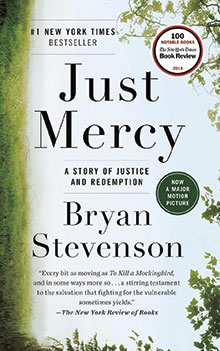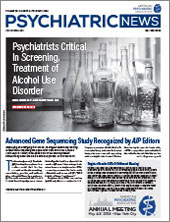Social justice activist, lawyer, and author Bryan Stevenson, J.D., M.P.P., will be a plenary speaker at the 2024 APA Annual Meeting in New York City. He will present a lecture in the ongoing series titled “Emerging Voices: Diversity, Equity, Inclusion and Belonging.”
A world-renowned public interest lawyer, Stevenson has devoted his career to criminal justice reform and defending condemned prisoners, juvenile offenders, and people who were wrongly convicted. He founded the Equal Justice Initiative, a nonprofit law organization that focuses on social justice and human rights. He and his staff have won reversals, relief, or release from prison for over 140 wrongly condemned prisoners on death row. They have also won relief for hundreds of other individuals who were wrongly convicted or unfairly sentenced. He also led the creation of two highly acclaimed cultural sites that opened in 2018: the Legacy Museum and the National Memorial for Peace and Justice. The institutions chronicle the legacy of slavery, lynching, racial segregation, and the connection to mass incarceration and contemporary issues of racial bias.
Stevenson has argued and won multiple cases at the U.S. Supreme Court, including a
2019 ruling protecting condemned prisoners who suffer from dementia and a 2012 ruling that banned mandatory life imprisonment without parole sentences for children 17 and younger. A graduate of Harvard Law School and the Harvard School of Government, he received the MacArthur Fellowship Award Prize in 1995.
He received APA’s Chester M. Pierce Human Rights Award in 2012. Some of the additional prestigious awards he’s received include the Reebok Human Rights Award; the Olaf Palme Prize in Stockholm, Sweden, for international human rights; and the ACLU National Medal of Liberty after he was nominated by U.S. Supreme Court Justice John Stevens. In 2015, he was named to the Time 100, which annually recognizes the world’s most influential people.
His 2015 book Just Mercy won the Carnegie Medal for Best Nonfiction, the Dayton Literary Peace Prize, and the NAACP Image Award for Best Nonfiction. It was adapted into a major motion picture, and the film won the American Bar Association’s 2020 Silver Gavel Award. Stevenson is also the subject of the Emmy Award-winning HBO documentary “True Justice.”
The Aronson Family Professor of Criminal Justice at the New York University School of Law, Stevenson has written for numerous publications. In 2015, he contributed an essay to the
Brennan Center for Justice’s Solutions: American Leaders Speak Out on Criminal Justice. In his essay, titled “Mercy, Especially for the Mentally Ill,” Stevenson wrote that his clients have often been broken by mental illness, poverty, and racism.
“In their broken state, they were judged and condemned by people whose commitment to fairness had been broken by cynicism, hopelessness, and prejudice,” he wrote. “We are supposed to sentence people fairly after fully considering their life circumstances, but instead we exploit the inability of the poor to get the legal assistance they need—all so we can kill them with less resistance.”
One powerful way to practice mercy is to change the way individuals with mental illness are treated, he wrote. “We get angry when people fail to recognize the need for thoughtful and compassionate assistance when it comes to the physically disabled, but because mental disabilities aren’t visible in the same way, we tend to be dismissive of the needs of the disabled and quick to judge their deficits and failures,” he wrote.
There are viable options to accommodate people with mental illness, he explained. Reforms should focus on providing funding so people with mental illness can receive services in the community. Mental health courts could redirect individuals to treatment instead of prison.
“Ultimately, you judge the character of a society, not by how they treat their rich and the powerful and the privileged, but by how they treat the poor, the condemned, the incarcerated,” he wrote. “All of our survival is tied to the survival of everyone.” ■
Stevenson’s lecture will be held Monday, May 6, from 10:30 a.m. to noon at the Javits Center.


